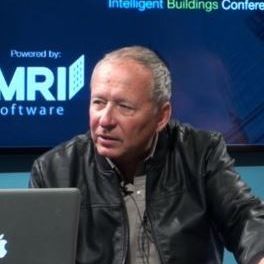We have been automating mundane processes and machine automation over decades to get us today to robots making cars and buildings automating HVAC systems for energy and cost efficiencies.
Automation has paved the way for us to spend our time and resources focusing on innovation.
Automation has digitized our world by connecting everything with sensors and data opening up new possibilities.
Automation has changed our work and jobs and suddenly created a divide of opportunities for some and taken away jobs from others highlighting the skill gaps.
Automation vs Digitization
Now in 2022, we are at a fork in the road.
Are we going to continue automation with a focus on short-term efficiencies? Are we going to reskill our workforce to create opportunities equitably for everyone? Are we going to automate our cars, homes, airports, and workplaces giving agency to Artificial Intelligence to make decisions for us?
Or
Are we going to focus on digitization and innovation to make our world better with a workplace that works for all of us, and personalize our environment to create new efficiencies with innovation?
I would like to recall the automation of bathrooms in a university concert hall to check stall availability but leaving it open for privacy invasions and data tracking of more than what the automation promised.
Are we going to use the connectivity from the sensors and data to train AI to make our futures better than our pasts?
Time for past lessons to guide our future
I have written about the collision of autonomous vehicles and autonomous buildings in the past. One is about serving us when we are stationary in buildings and the other is to serve our needs with our mobility.
Connecting everything and digitizing our worlds with data reminds us that at the center of all this is us – humans. It’s people in buildings, buildings in vehicles, and people excited or in despair at the opportunity gained or lost with automation.
It is time to answer ourselves how we can create a human-centric digitized world. We can focus on privacy by respecting data from everyone. We can stop and look around to make sure that the data reflects us with our many languages, looks, and identities. We can use digitization to innovate to make new opportunities for our futures by challenging a data economy that drives an attention economy and instead we can steer the data economy to create a human-centered economy.
It’s time to ask the questions about why not and how else instead of the what and how.
I recently had a data executive remind me that our roads were designed with carpool lanes for peak traffic as 9 am and 5 pm defined by an old male-centric world order and it is inconvenient
It’s time to collaborate respecting our diverse lived experiences to create new shared spaces that span from our buildings and cars to the sky.
Sudha Jamthe is a Technology Futurist who dreams of a limitless world and teaches AI at Stanford, authors books, and publishes research on Inclusive AI. Her latest project is on making Language AI inclusive at GlobalSouthinAI.org (http://GlobalSouthinAI.org)


